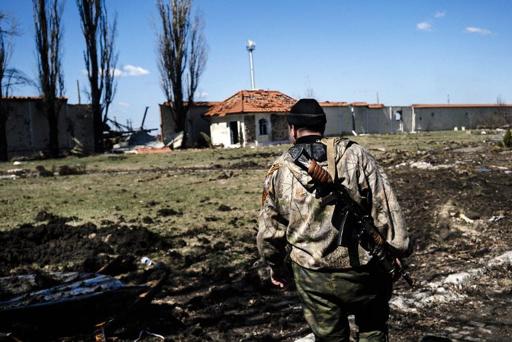EU member states agreed Wednesday to extend damaging economic sanctions against Russia over the Ukraine crisis by another six months to the end of January 2016, European sources said.
Ambassadors from the 28 European Union nations reached a "consensus" on the legal text extending the sanctions from July, which is expected to be submitted for formal approval by EU foreign ministers on Monday, the sources said.
The EU imposed the sanctions targeting Russia's banks, oil and defence sectors after Malaysia Airlines flight MH17 was shot down over rebel-held eastern Ukraine in July 2014.
EU leaders agreed in principle in March to roll those sanctions over, linking them directly to Russia's full implementation of a February ceasefire brokered by France and Germany in Minsk that runs to the end of this year.
EU sources said extending the sanctions to January 2016 means the bloc will have a full month after the Minsk accord expires to review the situation in eastern Ukraine, where pro-Moscow rebels have seized control of large areas.
They said EU foreign ministers will likely approve the text Monday without discussion, with EU leaders meeting Thursday and Friday when a formal announcement is expected.
Since the Ukraine crisis broke in late 2013, the EU has progressively imposed asset freezes and travel bans on leading rebel and Russian figures for their roles in a conflict which has cost more than 6,400 lives.
The decision to impose economic sanctions was much more controversial and painful, with certain member states such as Italy and Germany having particularly important trade and political ties with Moscow. The shooting down of flight MH17, however, made those bilateral considerations secondary to strong collective reaction.





















































